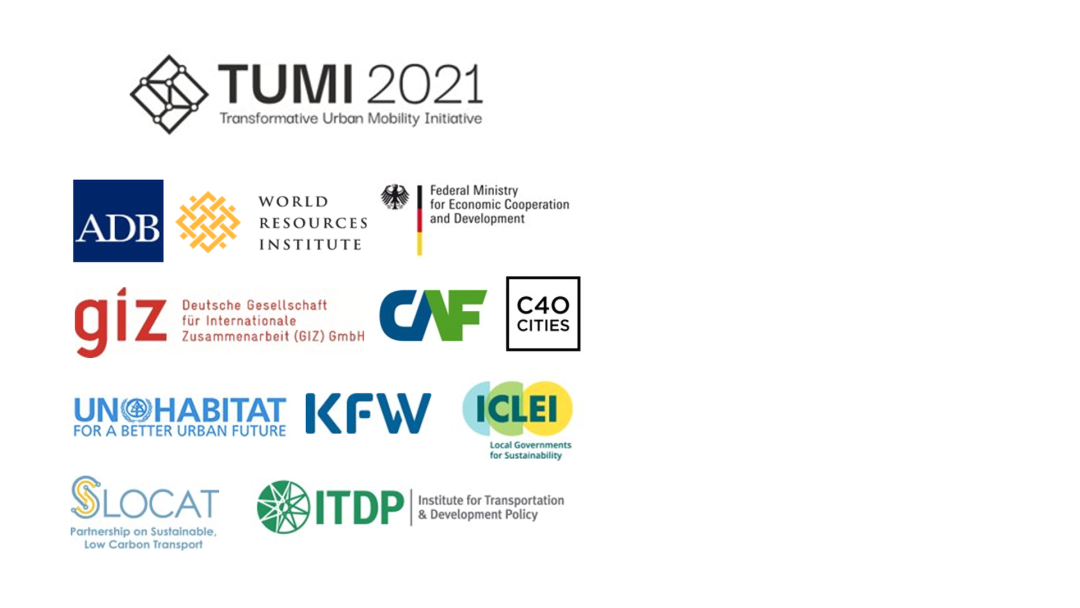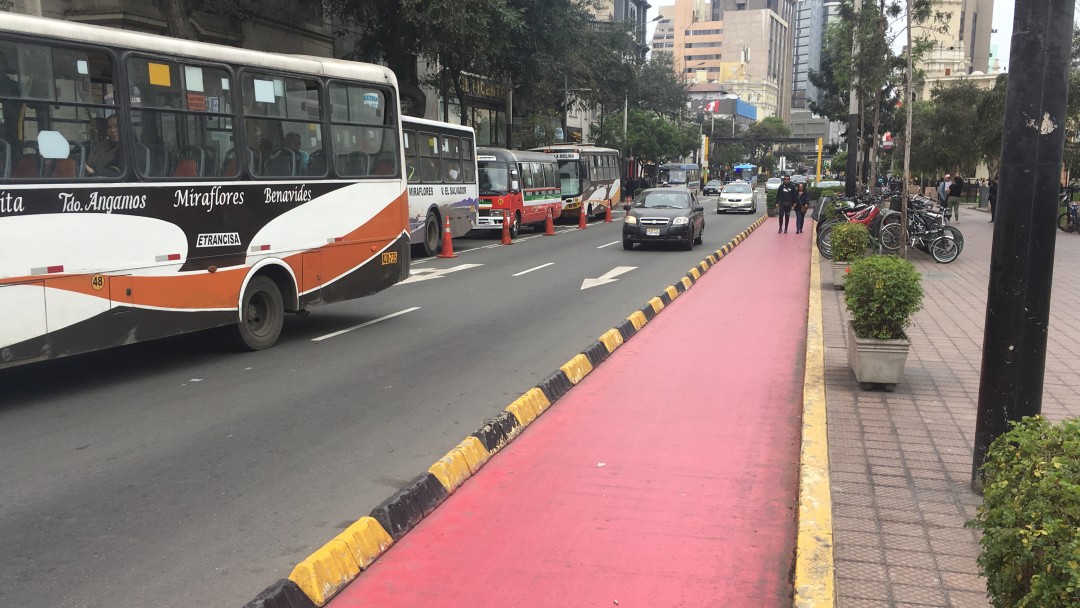News from 2021-05-25 / KfW Development Bank
Making urban mobility sustainable in the pandemic
TUMI Conference: new ecological ways in transport policy

The global Corona pandemic has also posed major challenges to the traffic and transport policies of many countries. The "Transformative Urban Mobility Initiative" (TUMI) Conference, held on Tuesday (25 May), therefore presented new, innovative solutions to overcome economic consequences of the restrictions imposed by the lockdowns and to make urban transport more sustainable. "We want urban mobility to be safe, clean, sustainable and affordable for everyone," emphasises KfW Division Manager Roland Siller. The meeting was attended by numerous representatives of governments, UN institutions and governmental and non-governmental development organisations.
Since the launch of TUMI by the German Federal Ministry for Economic Cooperation and Development (BMZ) in 2016, KfW Development Bank has committed around three billion euros to the development and expansion of public transport systems and active mobility such as walking and cycling, trains, trams and metros and intelligent transport guidance systems in its partner countries. "This commitment will enable the environmentally friendly transport of 27 million people a day worldwide," emphasises Siller. "At the same time, greenhouse gas emissions will be reduced by 1.5 million tonnes annually."
The contribution to the reduction of greenhouse gases is particularly important: because traffic and transport is the only sector worldwide in which greenhouse gas emissions have not been reduced since 1990. According to the BMZ, in most countries "transport is the second largest or even the largest source of greenhouse gas emissions after energy supply". Around a quarter of all energy-related CO2 emissions come from the transport sector. Added to this are the negative effects of fossil fuel use on air quality in cities.
The challenges of making the traffic and transport sector sustainable and climate-friendly in the pandemic and climate crisis remain great: more than two-thirds of the world's population, i.e. two to three billion people, will live in cities in 2050. Implementing transport policy ecologically despite this growth is the major task for national governments and the international community. "We can only achieve the Paris climate protection goals through a global transport turnaround," emphasises Roland Siller. In order to achieve the 1.5- or 2-degree target, the transport sector must be largely decarbonised by 2050.
On behalf of the BMZ, KfW is relying on a three-stage approach. "We support our partners in implementing the 'Avoid-Shift-Improve' principle," adds KfW department head Barbara Schnell. This involves avoiding traffic through integrated urban and transport planning (avoid), shifting traffic to sustainable transport systems (shift) and improving the energy efficiency of transport through electric drives, alternative fuels and intelligent transport systems (improve).

KfW is implementing this approach in Peru, among other places, by supporting the construction of the metro in the capital Lima as part of a multilateral project. The expansion of a network of cycle paths is now being promoted as a supplement to local public transport. At the same time, KfW is a long-standing partner of India, where it is promoting the construction and expansion of metros and bus systems in various cities and metropolitan areas.

Share page
To share the content of this page with your network, click on one of the icons below.
Note on data protection: When you share content, your personal data is transferred to the selected network.
Data protection
Alternatively, you can also copy the short link: https://www.kfw-entwicklungsbank.de/s/enzBWrMC.CfWA
Copy link Link copied